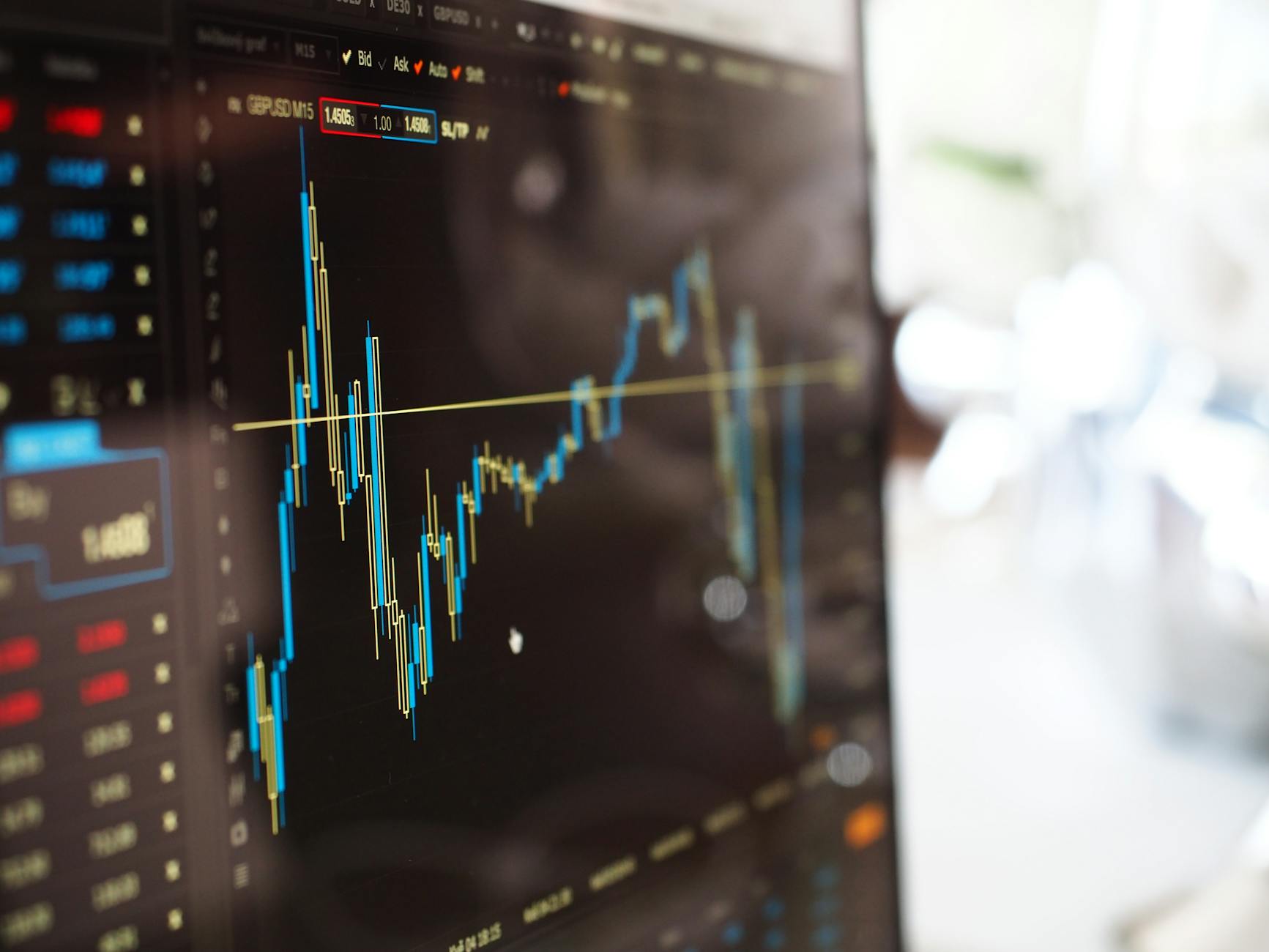What is prop trading firm in India?
💼 Have you ever dreamed of trading with someone else’s money? Imagine having access to cutting-edge technology, substantial capital, and the freedom to execute your trading strategies without risking your own savings. This isn’t a far-fetched fantasy—it’s the reality of prop trading firms in India.
🇮🇳 As India’s financial markets continue to evolve, prop trading firms are emerging as powerful players in the landscape. But what exactly are these mysterious entities, and how do they operate? Whether you’re a seasoned trader looking for new opportunities or a curious investor eager to understand market dynamics, understanding prop trading firms is crucial in today’s fast-paced financial world.
In this comprehensive guide, we’ll dive deep into the world of prop trading firms in India. We’ll explore their inner workings, the strategies they employ, and the technology that powers their operations. From the pros and cons of joining a prop firm to the future of this industry in India, we’ll cover everything you need to know to stay ahead in the game. 🚀
Understanding Prop Trading Firms
A. Definition and core concept
Proprietary trading firms, commonly known as prop trading firms, are financial institutions that use their own capital to trade various financial instruments for direct market gain. Unlike traditional investment banks or hedge funds, prop trading firms don’t manage external client funds. Instead, they leverage their own resources to generate profits through strategic market positions.
B. How prop trading differs from traditional trading
Prop trading differs significantly from traditional trading in several key aspects:
| Aspect | Prop Trading | Traditional Trading |
|---|---|---|
| Capital Source | Firm’s own capital | Client funds or personal capital |
| Risk Management | Firm bears all risks | Risks shared with clients |
| Profit Distribution | Traders receive a percentage of profits | Traders earn commissions or fees |
| Trading Strategies | Often employ advanced, high-frequency strategies | Generally use more conventional approaches |
| Technology | Access to cutting-edge trading infrastructure | Varies depending on individual or institution |
C. Key benefits for traders
Joining a prop trading firm offers several advantages for day traders in India:
- Access to substantial capital: Traders can execute larger trades without risking personal funds.
- Advanced technology: Firms provide state-of-the-art trading platforms and tools.
- Professional development: Opportunities to learn from experienced traders and mentors.
- Risk management: Firms typically have robust risk management systems in place.
- Profit potential: Traders can earn a significant percentage of their trading profits.
These benefits make prop trading firms an attractive option for skilled traders looking to maximize their potential in the financial markets. As we explore the Indian prop trading landscape, we’ll see how these firms are shaping the country’s trading ecosystem.

The Indian Prop Trading Landscape
Current market scenario
The prop trading landscape in India is rapidly evolving, with an increasing number of day traders in India seeking opportunities to leverage their skills and capital. The market has seen significant growth in recent years, driven by technological advancements and a growing interest in financial markets among young professionals.
Regulatory environment
The regulatory framework for prop trading firms in India is complex and still developing. The Securities and Exchange Board of India (SEBI) oversees the industry, implementing strict guidelines to ensure fair practices and protect market integrity. Here’s a brief overview of key regulations:
| Regulation | Description |
|---|---|
| Registration | Prop trading firms must register with SEBI |
| Capital requirements | Minimum capital thresholds for different trading activities |
| Risk management | Mandatory risk management systems and practices |
| Reporting | Regular reporting of trading activities and financial positions |
Notable prop trading firms in India
Several prominent prop trading firms have emerged in the Indian market, catering to the growing demand for sophisticated trading platforms and opportunities. Some of the notable firms include:
- Alphagrep Securities
- Quadeye Securities
- Acceletrade
- Brainsta Technologies
These firms offer various trading strategies and technologies to attract talented day traders in India.
Growth potential and challenges
The Indian prop trading sector shows significant growth potential, driven by:
- Increasing market sophistication
- Growing pool of skilled traders
- Advancements in trading technology
However, the industry also faces several challenges:
- Regulatory uncertainties
- Intense competition
- Market volatility
- Talent retention
As the market matures, prop trading firms in India will need to adapt to changing regulations and market conditions to capitalize on the growing opportunities in the financial sector.

How Prop Trading Firms Operate in India
Prop trading firms in India have a unique operational structure that sets them apart from traditional financial institutions. Let’s explore how these firms function, from recruitment to profit-sharing.
A. Recruitment and selection process
Prop trading firms in India are highly selective when it comes to hiring day traders. The recruitment process typically involves:
- Initial screening of applications
- Online aptitude tests
- Technical interviews
- Trading simulations
- Final in-person interviews
| Stage | Purpose |
|---|---|
| Initial screening | Evaluate basic qualifications and experience |
| Online aptitude tests | Assess analytical and decision-making skills |
| Technical interviews | Gauge market knowledge and trading strategies |
| Trading simulations | Evaluate real-time trading performance |
| Final interviews | Assess cultural fit and long-term potential |
B. Training and mentorship programs
Once selected, day traders in India undergo rigorous training programs:
- Intensive market education
- Trading platform familiarization
- Risk management techniques
- Mentorship from experienced traders
C. Risk management strategies
Prop trading firms in India implement strict risk management protocols:
- Position size limits
- Daily loss limits
- Real-time monitoring systems
- Regular performance reviews
D. Profit-sharing models
Most prop trading firms in India operate on a profit-sharing basis:
- Traders typically receive 50-80% of their profits
- Some firms offer base salaries plus bonuses
- Performance-based incentives are common
Now that we’ve explored how prop trading firms operate in India, let’s delve into the types of trading strategies these firms commonly employ.

Types of Trading Strategies Employed
Prop trading firms in India employ various strategies to maximize profits and manage risks effectively. Let’s explore the four main types of trading strategies used by day traders in India and prop trading firms:
A. High-frequency trading
High-frequency trading (HFT) involves executing a large number of trades at incredibly high speeds, often within milliseconds. This strategy relies on sophisticated algorithms and powerful computer systems to:
- Identify and exploit minute price discrepancies
- Execute trades before other market participants
- Capitalize on short-lived market inefficiencies
| Pros | Cons |
|---|---|
| High potential for profits | Requires significant technological investment |
| Reduces market inefficiencies | May increase market volatility |
| Provides liquidity to markets | Controversial due to perceived unfair advantage |
B. Algorithmic trading
Algorithmic trading uses computer programs to execute trades based on predefined rules and mathematical models. This strategy:
- Removes emotional biases from trading decisions
- Allows for simultaneous monitoring of multiple markets
- Executes trades at optimal prices and times
Key components of algorithmic trading include:
- Technical indicators
- Statistical analysis
- Machine learning algorithms
- Historical data backtesting
C. Discretionary trading
Discretionary trading relies on human judgment and analysis to make trading decisions. Traders using this strategy:
- Analyze market trends, news, and economic data
- Use technical and fundamental analysis
- Make decisions based on experience and intuition
While less prevalent in prop trading firms compared to automated strategies, discretionary trading still plays a crucial role in:
- Complex market situations
- Interpreting non-quantifiable information
- Adapting to sudden market changes
D. Market making
Market making involves providing liquidity to the market by continuously quoting buy and sell prices for financial instruments. This strategy:
- Profits from the bid-ask spread
- Helps maintain market efficiency
- Reduces transaction costs for other market participants
Market makers in prop trading firms often use a combination of automated systems and human oversight to:
- Manage inventory risk
- Adjust quotes based on market conditions
- Ensure compliance with regulatory requirements
Now that we’ve explored the various trading strategies employed by prop trading firms, let’s examine the technology and infrastructure that support these sophisticated operations.

Technology and Infrastructure
In the fast-paced world of prop trading, cutting-edge technology and robust infrastructure are crucial for success. Indian prop trading firms invest heavily in these areas to maintain a competitive edge.
Advanced Trading Platforms
Prop trading firms in India leverage sophisticated trading platforms that offer:
- Real-time market data
- Advanced charting tools
- Automated order execution
- Risk management features
These platforms enable day traders in India to execute trades swiftly and efficiently, capitalizing on market opportunities within milliseconds.
Data Analysis Tools
To gain insights and make informed decisions, prop trading firms utilize powerful data analysis tools:
| Tool Type | Purpose | Benefits |
|---|---|---|
| Machine Learning Algorithms | Pattern recognition | Identify trading opportunities |
| Big Data Analytics | Market sentiment analysis | Predict market trends |
| Backtesting Software | Strategy evaluation | Optimize trading algorithms |
These tools help traders analyze vast amounts of market data, refine their strategies, and improve their overall performance.
Low-Latency Networks
In prop trading, speed is paramount. Indian firms invest in:
- High-speed fiber optic networks
- Co-location services near exchanges
- Advanced network switches and routers
These low-latency networks minimize delays in order execution, giving traders a significant advantage in the market. By reducing latency to microseconds, prop trading firms can execute trades faster than their competitors, potentially leading to higher profits.
With technology evolving rapidly, prop trading firms in India continue to upgrade their infrastructure to stay ahead in the competitive trading landscape. This commitment to technological advancement not only benefits the firms but also contributes to the overall growth and sophistication of the Indian financial markets.
Pros and Cons of Joining a Prop Trading Firm
Access to capital and resources
Joining a prop trading firm in India offers significant advantages, particularly for day traders. One of the most attractive benefits is access to substantial capital and advanced resources. Prop firms provide traders with the financial backing to execute larger trades, potentially leading to higher profits. This access to capital is especially valuable for traders who may not have significant personal funds to invest.
Potential for high earnings
The earning potential at prop trading firms can be substantial, making it an appealing option for ambitious day traders in India. Most firms offer a profit-sharing model, where traders keep a percentage of their profits. This structure can lead to significant income, especially for skilled and successful traders.
| Aspect | Traditional Trading | Prop Trading |
|---|---|---|
| Capital | Limited personal funds | Access to firm’s capital |
| Profit Share | 100% (minus fees) | Typically 50-80% |
| Risk | Personal | Shared with firm |
Pressure to perform
While the potential rewards are high, prop trading comes with considerable pressure. Traders are expected to generate consistent profits, often with strict performance metrics. This pressure can be intense, particularly for day traders in India who must navigate volatile markets and make split-second decisions.
Limited job security
One of the main drawbacks of prop trading is the lack of job security. Unlike traditional employment, prop traders’ positions are often contingent on their performance. If a trader consistently underperforms or violates risk management protocols, they may lose their trading privileges or be asked to leave the firm.
- Pros:
- Access to substantial capital
- Advanced trading technology and tools
- Potential for high earnings
- Opportunity to learn from experienced traders
- Cons:
- High-pressure environment
- Limited job security
- Potential for financial losses
- Strict performance requirements
With these pros and cons in mind, aspiring day traders in India must carefully consider whether joining a prop trading firm aligns with their career goals and risk tolerance. Next, we’ll explore the future outlook for prop trading in India and how it might evolve in the coming years.
Future of Prop Trading in India
As we look ahead, the landscape of prop trading in India is poised for significant transformation. Let’s explore the emerging trends, technological advancements, and potential regulatory shifts that will shape the future of this dynamic industry.
Emerging trends
The prop trading sector in India is witnessing several exciting developments:
- Increased participation of retail traders
- Expansion into new asset classes
- Growing focus on algorithmic trading
- Rise of remote trading setups
These trends are reshaping the industry and creating new opportunities for day traders in India.
| Trend | Impact on Prop Trading |
|---|---|
| Retail participation | Wider talent pool for firms |
| New asset classes | Diversification of strategies |
| Algorithmic trading | Enhanced efficiency and speed |
| Remote trading | Flexibility and cost reduction |
Impact of AI and machine learning
Artificial Intelligence (AI) and machine learning are revolutionizing prop trading in India:
- Advanced pattern recognition for market analysis
- Automated risk management systems
- Predictive analytics for trade execution
- Natural language processing for news sentiment analysis
These technologies are empowering day traders in India with sophisticated tools to gain a competitive edge in the markets.
Potential regulatory changes
The regulatory landscape for prop trading in India is likely to evolve:
- Stricter compliance requirements
- Enhanced transparency measures
- Potential introduction of licensing for prop trading firms
- Regulations addressing algorithmic and high-frequency trading
As the industry matures, these regulatory changes aim to ensure fair practices and maintain market integrity. Day traders in India will need to stay informed and adapt to these evolving regulations to thrive in the prop trading ecosystem.
With these developments on the horizon, the future of prop trading in India looks promising, offering exciting opportunities for skilled traders and firms alike.

Prop trading firms in India represent a dynamic and evolving sector of the financial industry, offering unique opportunities for skilled traders to leverage institutional capital and advanced technology. These firms operate on a model that combines trader expertise with proprietary strategies, creating a symbiotic relationship that can lead to substantial profits for both parties. As the Indian financial markets continue to mature, prop trading firms are likely to play an increasingly significant role in market liquidity and price discovery.
For aspiring traders, joining a prop trading firm can provide access to sophisticated trading tools, substantial capital, and valuable mentorship. However, it’s crucial to carefully consider the high-pressure environment and performance-based compensation structure typical of these firms. As India’s financial ecosystem continues to grow and adapt to global trends, prop trading firms are poised to contribute significantly to the country’s economic landscape, potentially offering exciting career paths for those willing to embrace the challenges and opportunities in this fast-paced field.

